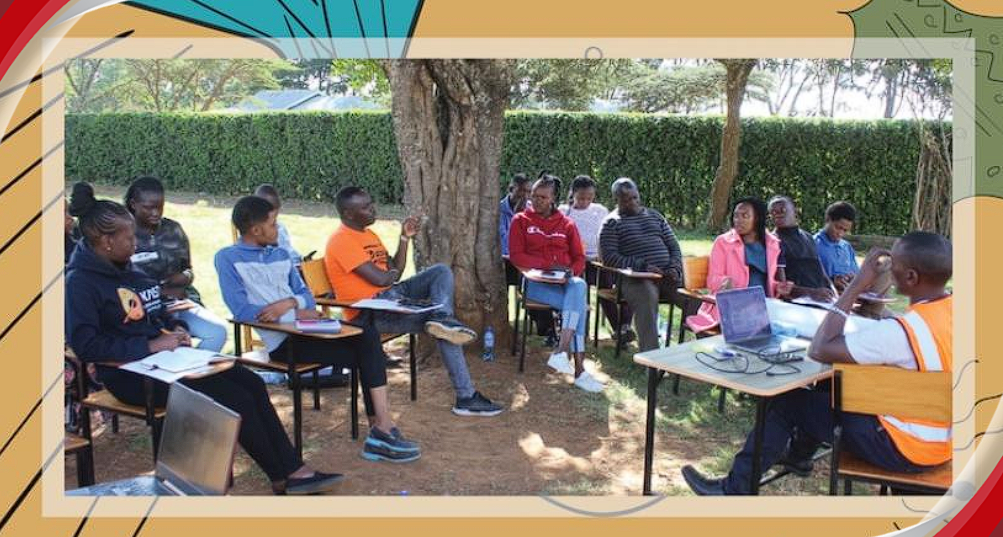Articles
South Africa needs skilled ICT professionals for the business and sector survival
-
1 year ago
As we head into the second half of 2023, the issue of youth unemployment in South Africa remains a significant concern. According to Stats SA’s latest Quarterly Labour Force Survey (QLFS), South Africa’s young population is severely affected by unemployment and remains disengaged from the labour market. In fact, the report for the first quarter of 2023 indicated that approximately 10.2 million people aged 15 to 24 – a concerning 36% – identified as NEET (not in Employment, Education, or Training).
On the other side of the conundrum, the Information and Communications Technology (ICT) sector is experiencing a severe skills shortage and needs innovative interventions to fill the gaps.
Given how pervasive technology has become in all business operations, regardless of company size or industry sector, it’s not surprising how vital ICT skills are for business success. From data scientists and program analysts, to ICT security specialists and network analysts, technology is a golden thread running through the skills most needed by South Africa’s businesses.
Therefore, a shortage in ICT skills has implications beyond mere operations, as the sector is responsible for organisational digitisation, data protection, and vulnerability to cyber-attacks and ransomware. Yet it remains a struggle for South African companies to find talent as they accelerate the adoption of emerging technologies such as artificial intelligence (AI), cloud computing and big data. The fast-paced uptake of these technological advancements means an increasing demand for positions such as cloud engineers, data scientists and DevOps engineers to manage the corresponding cybersecurity risks.
Across the Middle East and Africa, 74% or organisations surveyed in the 2023 Veeam Data Protection Trends Report cited a “Protection Gap” between how much data they can lose and how frequently IT protects their data. To address this challenge, organisations are expected to increase their data protection budget by 7.3% in 2023, including across data protection solutions as well as human resources.
While we are starting to see the results of efforts to improve results in science, technology, engineering and maths (STEM) education, there is clearly still more to be done, and this is the collective responsibility of all stakeholders, including corporate organisations, training institutions and the public sector. If not addressed, these critical skills gaps will continue to hamper economic growth.
And in the current economic climate, South African businesses can ill afford not to capitalise on growth opportunities, and they need operational and technological agility to do so. Business leaders have to do what they’ve always had to do: produce growth, deliver results, develop their people, and innovate to meet marketplace needs and beat competitors. For example, developing plans that align business goals to staff objectives, identifying current and future leadership skills needed, recruiting staff that can be nurtured and grow with the business (junior as well as senior) and allocating a skills and development budget for current, and particularly more junior, employees to be upskilled from their existing roles.
Many enterprises have the resources and scale to build tomorrow’s workforce today, and can help bridge the skills gap between graduates and the workforce through initiatives such as mentorship programmes. For those that don’t have the necessary budgets or in-house training available, consider outsourcing training and skills development to external experts as and when needed for a more time- and cost-effective approach.
Take the channel as an example. It is in every vendor’s and distributor’s best interest to take advantage of the skill sets and training programmes offered by its resellers, cloud service providers and other partners. If technological skills are absent, then growth will be limited or stagnate.
In Veeam’s experience, channel partners whose solutions engineers or architects are certified or accredited sign up to three times more new business than those who aren’t. Investing in talent development, training and retention does more than ensure employees have the latest skills, their expertise helps make companies more efficient and competitive. Faster deployments, and improved support results in higher levels of customer satisfaction, loyalty and spend.
Bear in mind that the Return on Investment (ROI) of some training programmes may be felt in the mid- rather than short-term. However, the mid- to long-term success of a business depends on anticipating and planning for the future shape of the workforce. Ultimately, in ICT terms the goal is to achieve business resilience via having the appropriate skillsets across all data ecosystems, including cloud, physical, virtual, SaaS and Kubernetes, to meet the productivity and data protection strategy needs of the organisation. And to meet future such needs too.
When it comes to who should be in charge of upskilling, reskilling, and training IT talent within an organisation, we support a collaborative approach, where the CIO and Human Resources department work together to ensure that the company has the right talent for immediate needs and to map out the talent needed for the future. Alignment to the objectives of the organisation means they should continuously identify and provide employees with the skills and training they need to stay relevant in their respective markets.
The ICT skills shortage is something no single organisation can take responsibility for. The entire ICT sector must work together and identify ways to address this. If skills development is not prioritised, then the risk that the gap will worsen increases exponentially. Perhaps the spotlight must turn to how effective existing upskilling and reskilling initiatives have been and what can be learnt from previous experience to inform future planning and initiatives. This matters not just locally, but also when considering how quickly technology is evolving with digital transformation becoming even more of a priority globally. We must take the opportunity to harness skills development in broad terms for local as well as global advantage.
Related Articles Posts
Categories
Popular Post
-
 SA’s IT spend to outpace GDP growth 1 year ago
SA’s IT spend to outpace GDP growth 1 year ago -
 Vodacom, Netstar launch free in-taxi Wi-... 1 year ago
Vodacom, Netstar launch free in-taxi Wi-... 1 year ago -
 South Africa under pressure to fill cybe... 1 year ago
South Africa under pressure to fill cybe... 1 year ago -
 Organisations with a strong employee val... 1 year ago
Organisations with a strong employee val... 1 year ago -
 Joint policy-in-action event highlights... 1 year ago
Joint policy-in-action event highlights... 1 year ago -
 Boost your digital transformation journe... 1 year ago
Boost your digital transformation journe... 1 year ago








